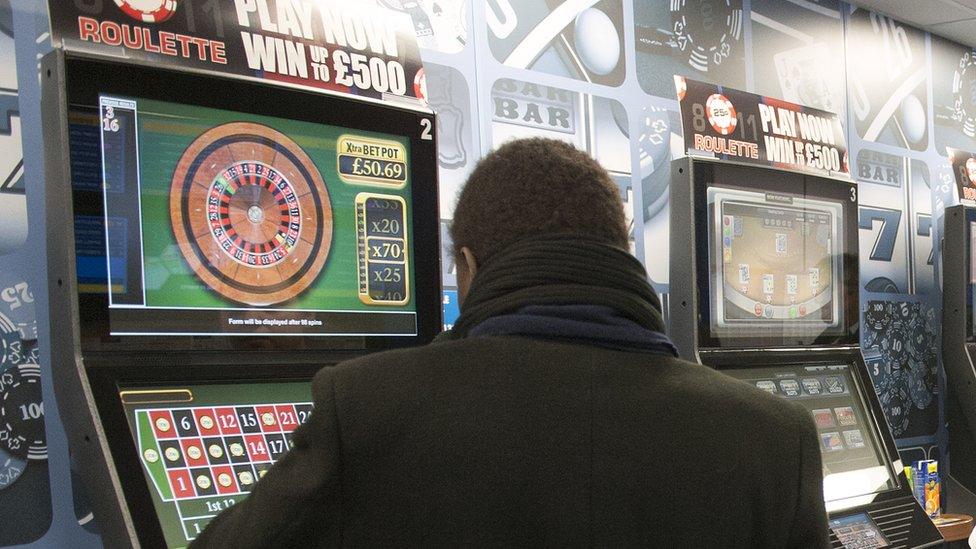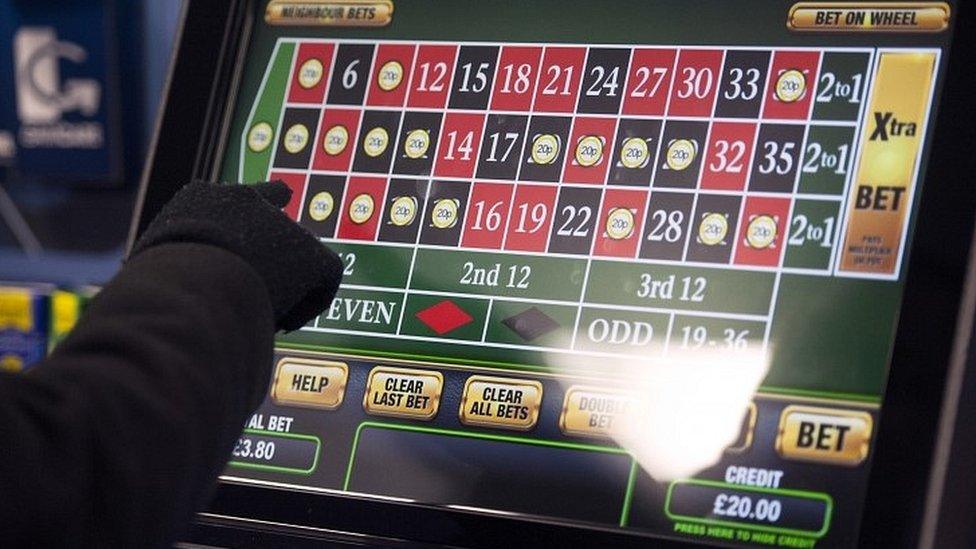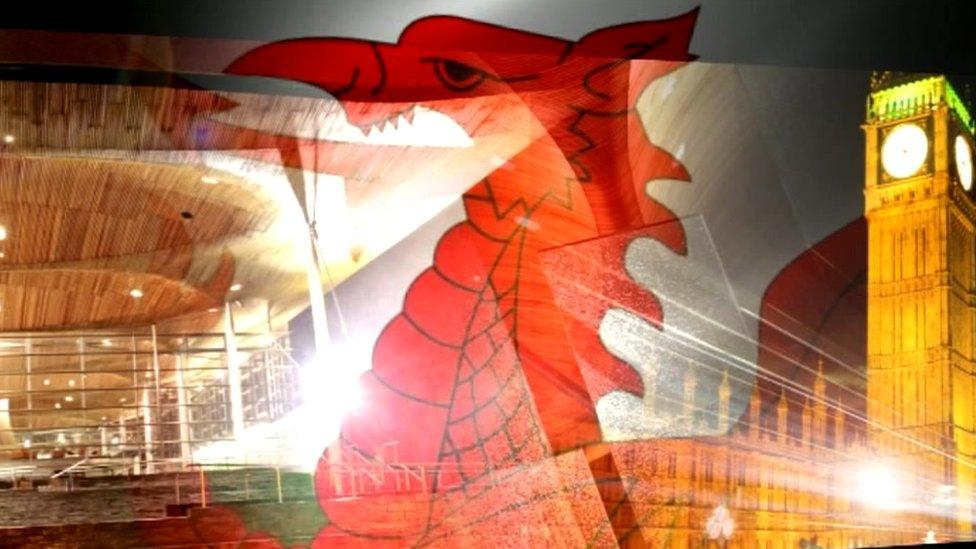Labour powers push on fixed-odds betting terminals fails
- Published

A final attempt by Labour to give Wales more power to ban fixed-odds betting terminals has been defeated in the House of Commons.
It means control over new machines with maximum stakes over £10, external will be devolved, as the Wales Bill cleared its final hurdle in Parliament.
Shadow Welsh Secretary Jo Stevens wanted the power extended to existing terminals with maximum stakes over £2.
UK ministers expect the bill to gain Royal Assent in February.
The Wales Bill will hand Welsh ministers extra powers over transport, energy and electoral arrangements - including the power to increase the number of AMs.
It will also allow the Welsh Government to make some alternations to income tax.
But critics, including the Welsh Government itself, said other changes introduced too many restrictions on what it could or could not do.
On Tuesday, in the Commons, UK government amendments introduced in the Lords were accepted, devolving powers over water, fishing vessels and the right to be consulted over coastguard policy.
Welsh Secretary Alun Cairns said it was a "landmark day" and the bill "brings clarity to the settlement and accountability for Welsh Government".

In October, the UK government announced a review of FOBTs amid concern about their attraction to vulnerable people.
On the question of devolving FOBT regulation, a UK government spokesman said it was "giving Wales the same powers as Scotland has to address the local social problems that these machines can sometimes create".
Labour had claimed fixed-odds betting terminals (FOBTs) were highly addictive, allowing players to stake up to £100 every 20 seconds, compared to the £2 maximum bet on a fruit machine.
The party pointed to research showing there were four times as many betting shops in areas of high unemployment as in areas of low unemployment.
The Campaign for Fairer Gambling estimates that customers in Wales lost over £50m on FOBTs between September 2014-15.
The Association of British Bookmakers defended betting shops in Wales as the "safest place" to gamble as they were the most highly regulated retailer on the high street.
- Published17 January 2017

- Published13 December 2016

- Published15 November 2016

- Published24 October 2016
